selfdriving
Latest

Samsung is testing self-driving car technology in South Korea
Samsung's ambitions to be a player in the self-driving car space aren't new, but today the company hit a big milestone. The company's home country of South Korea has approved Samsung's plans to test self-driving cars on real roads, not just test courses. According to the Korea Herald, Samsung isn't building cars itself. Instead, the company is working on developing sensors and computer parts that are backed up by its artificial intelligence and deep learning software.
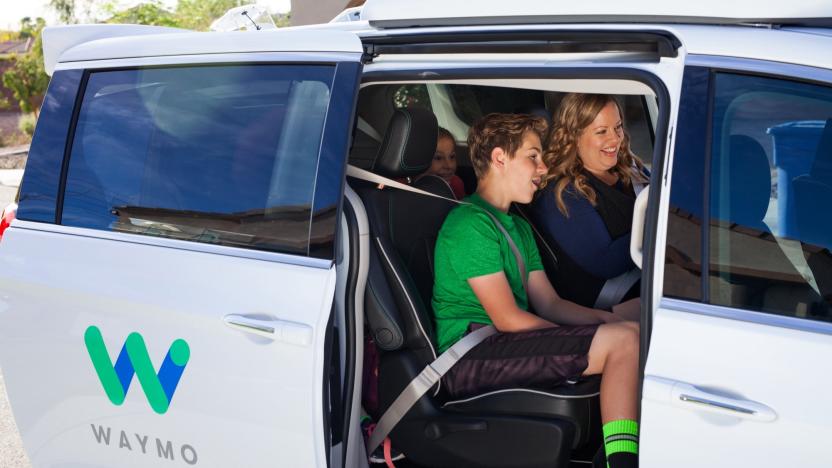
Waymo is ready to offer public rides in its self-driving minivans
While Alphabet's legal battle with Uber continues to rumble on, its Waymo self-driving initiative is going from strength to strength. Its laser-mounted white minivans are consistently proving their reliability on the roads and besting their rivals, so much so that the company now wants humans to get involved. In a blog post, the company today announced that it's expanding its test program in Phoenix by allowing families to register for its early rider program.

Uber's legal defense: Waymo does LiDAR better, for now
Uber has finally responded via the courts to Waymo's allegation that it's using the Alphabet company's Lidar technology. The ride-hailing company called Waymo's injunction motion to stop using technology that was allegedly misappropriated from Google servers a "misfire." It also insisted that because it's developing multi-lens LiDAR technology instead of the single-lens that Waymo uses, it's not using stolen technology.

GM challenges eight schools to build self-driving Chevy Bolts
Just about every major car company is trying to figure out the best way to build a self-driving car, and GM is tapping a handful of schools to help get the job done. Teams from Virginia Tech, the University of Waterloo, Kettering University, Michigan State University, Michigan Tech, the University of Toronto, Texas A&M and North Carolina A&T have been selected to apply their know-how to a very specific challenge. Long story short, they each have three years to load up a bog-standard Chevy Bolt EV with all the equipment it needs to self-drive on an urban testing course.
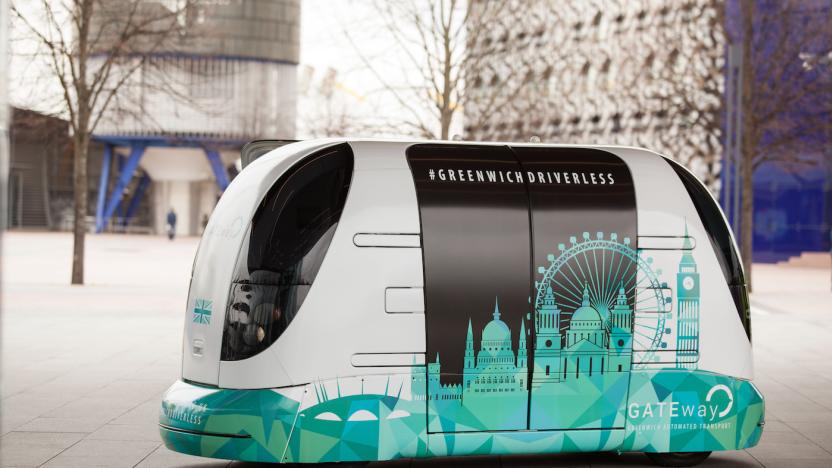
Driverless pods begin ferrying the public around Greenwich
It's been almost a year since the UK's Transport Research Laboratory (TRL) opened sign-ups for a driverless pod trial in Greenwich. The original plan was to start before Christmas, but given today's date that obviously didn't happen. Still, better late than never, eh? Over the next three weeks, roughly 100 people will clamber aboard "Harry," a self-driving shuttle named after clockmaker John Harrison. It will take them around a two-mile course in London's North Greenwich, near The O2, to demonstrate how the technology could be used for "last mile" trips in urban areas.
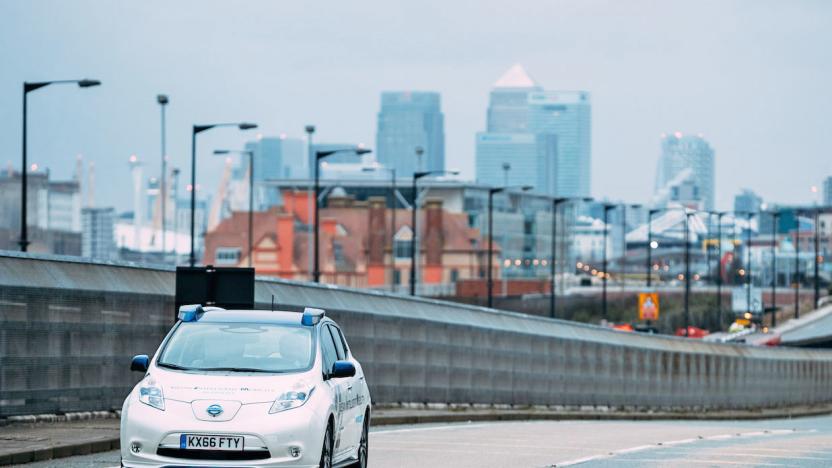
Why London is a self-driving nightmare for the Nissan Leaf
For the people sitting in the lobby of the Aloft ExCel, a premium hotel in the heart of London's Docklands district, it was a typical day. Some were there on business, others to see the city. A handful of parents were patiently waiting to be ushered in for their weekly mother and baby swimming classes. However, in one corner, just out of view, were some of the top executives from Japanese car maker Nissan. They were busy making last-minute preparations for a self-driving vehicle that has been quietly traversing London's streets as part of the first ever European tests. These secret experiments -- the first Nissan has conducted in Europe -- could shape how Brits travel in the coming years.
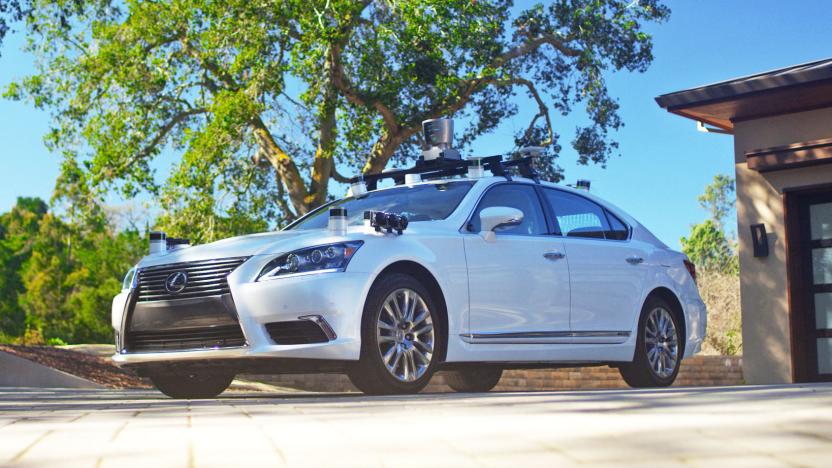
Toyota unveils its next-gen autonomous test vehicle
Way back in 2013, Toyota showed off its self-driving testbed for autonomous vehicle features like safety braking and automatic lane control. Now, the company is pulling the dust sheets off the second-generation of the ride, which is designed to do a whole lot more. The Toyota Research Institute 2.0 Advanced Safety Research is the first that the company can say was built entirely in-house.

UK government finally draws up laws for autonomous cars
Ever since the idea of autonomous vehicles began appearing on the roadmaps of major car makers, the UK government has made it clear that Britain can provide a strong platform for them to develop and test what they've built. Some projects, like the Lutz Pathfinder pod, are already underway, but questions have remained over who will be liable when autonomous modes are engaged on public roads. The 2016 Queen's Speech included a "Modern Transport Bill" that set out what needed to be done to support the introduction of driverless cars in the coming years. The document, which called for new and updated legislation, has now been worked on and finalised as the Vehicle Technology and Aviation Bill. In it, the government lists a number of proposals regarding how self-driving cars should be insured and suggests new rules requiring petrol stations (like Shell) and businesses to install more charging points for electric and hydrogen-powered cars. Most importantly, the government says insurance for autonomous vehicles in the UK will need to cover when the driver is in manual control and when the car is driving itself. It has been suggested that insurers will act as a middleman for manufacturers so that anyone injured by an autonomous car can claim against the owner's insurance and not have to file a private liability claim against the car maker. "This will mean innocent victims involved in a collision with an automated vehicle will have quick and easy access to compensation," the government said in a statement. The Bill also lays out instances where the owner will be at fault, even after engaging autonomous mode. If the owner has decided to modify the software on their vehicle or has failed to install important updates when their policy instructs them to, they will be made liable for any damages. It'll be down to the Secretary of State, by way of the Department for Transport, to decide which cars are covered by the new laws. "Automated vehicles have the potential to transform our roads in the future and make them even safer and easier to use, as well as promising new mobility for those who cannot drive," said Transport Secretary Chris Grayling. "We must ensure the public is protected in the event of an incident and today we are introducing the framework to allow insurance for these new technologies." To better assist the rising numbers of electric cars, the Vehicle Technology and Aviation Bill includes measures to increase the number of charging stations, but also force businesses to provide easy access to information regarding their location, hours of operation, fuelling options, cost (and methods of payment), charging methods (Tesla uses a different connector to Nissan, for example) and whether they are in use. Petrol stations and large businesses like supermarkets would be urged to provide points under the new proposals. Although true driverless cars are perhaps a few years away, the government believes that by acting quickly, car makers and developers of driverless technology will position the UK a leader in autonomous transportation. The Bill will now pass through Parliament, where ministers and third parties like insurers and vehicle makers can share their thoughts on how the UK's autonomous infrastructure should be built and maintained.
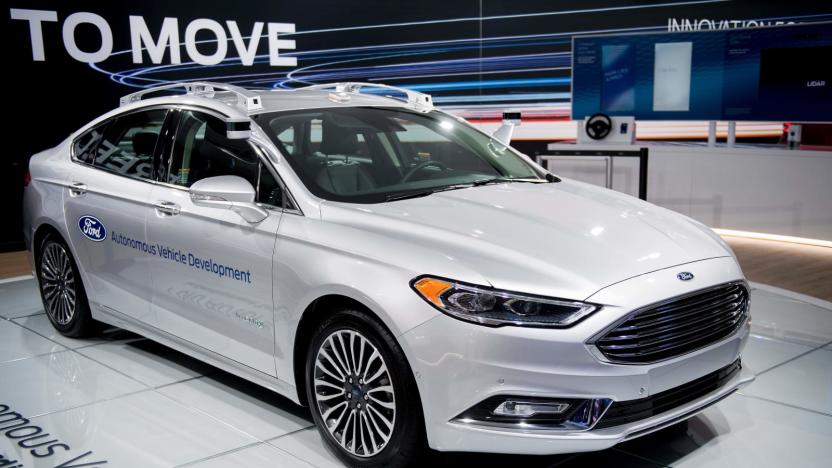
Ford bets $1 billion on an unknown self-driving AI company
Seemingly out of the blue, Ford announced today that it's investing $1 billion in Argo AI, a Pittsburgh-based company building self-driving technology. Ford is effectively buying the previously unknown startup, which was founded by engineers from Google and Uber. Argo AI will operate as an independent subsidiary and will focus on developing a software platform for Ford's self-driving car, which the company is targeting for 2021. Notably, Ford is also planning to license the technology out to other companies.
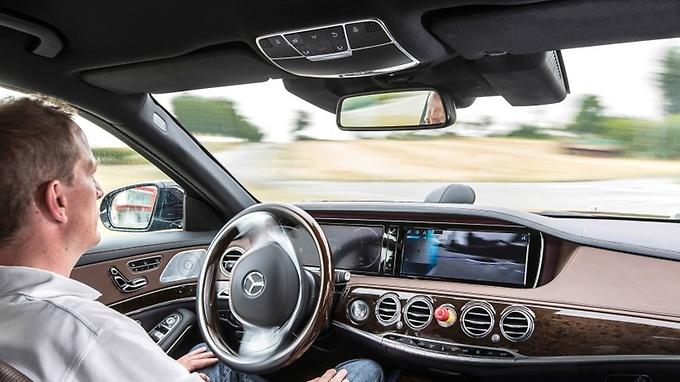
Uber opens its network to self-driving cars, starting with Daimler
Mercedes-Benz parent company Daimler has agreed to eventually roll out a fleet of self-driving vehicles on the Uber network, in the hope of making ridesharing safer and more environmentally friendly. To be clear, Daimler doesn't currently have any self-driving vehicles on the market, but it's working on a line due out "in the coming years," according to Uber.

Self-driving Nissan LEAFs will hit London streets next month
If autonomous cars are to be made available in the UK, car makers first need their vehicles to do hard miles on domestic roads. Nissan knows this, so today it confirmed that it will deploy a fleet of LEAF vehicles in London next month, giving it the opportunity to publicly test its autonomous drive technology for the first time in Europe.

George Hotz wants Comma AI to be the Android of autonomous driving
Hacker, entrepreneur, rabble rouser and freeform rapper George Hotz joined us on the Engadget stage at CES to talk about the decision to open-source his autonomous car research and the state of self driving. He also weighed in on California's regulatory system (he's not a fan) and how he's excited about the future of augmented reality.

Hyundai tests a more economical autonomous car system
Our self-driving future will initially be extremely expensive. That's why GM and Ford are working on autonomous systems for ride-hailing ahead of selling cars to individuals. Meanwhile, Korean automaker Hyundai is researching another approach: a system that uses less computing power and is therefore cheaper.

Riding inside the Lucid Air luxury EV
Exposed wires and metal beams are typically not what you want to see in a car. But as a Lucid engineer punched the accelerator (only Lucid employees are allowed behind the wheel), the preproduction Air I sat in tore down the road of the Fremont industrial park. The vehicle was only operating at half power.

BMW and Baidu end self-driving car partnership
Last June, BMW and Baidu announced they would work together on self-driving car technology. Reuters reports that the automaker and Chinese tech company are now ending the joint research project. Baidu had been using BMW 3 sedans to perform on-road tests in China and had plans to so the same in the US.

Lucid Motors' super-secret car makes an appearance
Automotive startup, Lucid Motors dropped by the LA Auto Show with its super-secret sedan today. Because it's electric and doesn't have a traditional engine taking up space, the company has designed the car to have a smaller footprint that a luxury sedan like the BMW 7-Series. But, boasts the roughly the same amount of cargo and passenger space as those high-end vehicles.
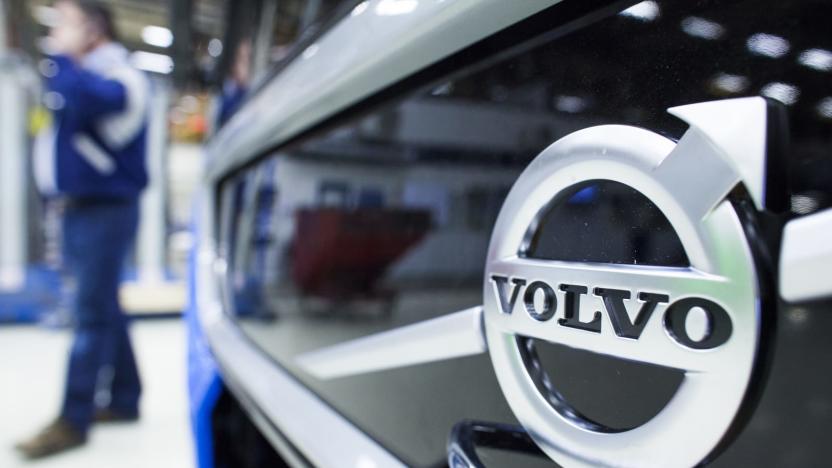
Volvo's self-driving cars will hide from UK 'bullies'
If you could see that the car in front of you was being driven autonomously and therefore navigating in an ultra-safe manner, how would you react? Would you treat it as you would any other road user or be more inclined to torment it, knowing it would yield to your advances? It's a very real question that car makers and insurance companies are wrestling with and one that has prompted Swedish automotive giant Volvo to take preemptive action. The Guardian reports that it's decided that when the first 100 self-driving 4x4s hit London's streets in 2018, they'll look no different to any other Volvo of the same model so that other road users aren't tempted to "take them on."

Geohot cancels his self-driving add-on amid legal scrutiny
George "Geohot" Hotz, PlayStation and iPhone hacker extraordinaire, has canceled production on Comma One, a $1,000 aftermarket add-on that he said would allow some cars to operate semi-autonomously. He claimed the tech was "about on par" with Tesla's Autopilot and it used cars' video feeds to navigate the roads. It was due to start rolling out at the end of this year. But, after receiving a special order from the National Highway Traffic Safety Administration today, Geohot decided Comma One wasn't worth the paperwork.

Uber's self-driving truck company completes a 120-mile beer run
If you're in Colorado and grab a can of Budweiser, it's possible that you might be sipping beer delivered by Uber's autonomous truck company. Today, Otto confirmed that on October 20th, it "completed the world's first shipment by a self-driving truck," a delivery that involved transporting 2,000 cases (or 51,744 cans) of Bud from Fort Collins, Colorado to Colorado Springs along Interstate 25.

German officials: Tesla shouldn't say 'Autopilot' in its ads
Just days ago, Germany's Federal Motor Authority sent letters to Tesla owners warning them that their cars' "Autopilot" feature is strictly there for driver assistance, not driver replacement. As it turns out, those letters were just the opening salvo. According to a report from Reuters, the German government is asking Tesla to stop using the term "autopilot" in its advertising entirely out of concerns that people misinterpret its purpose.








